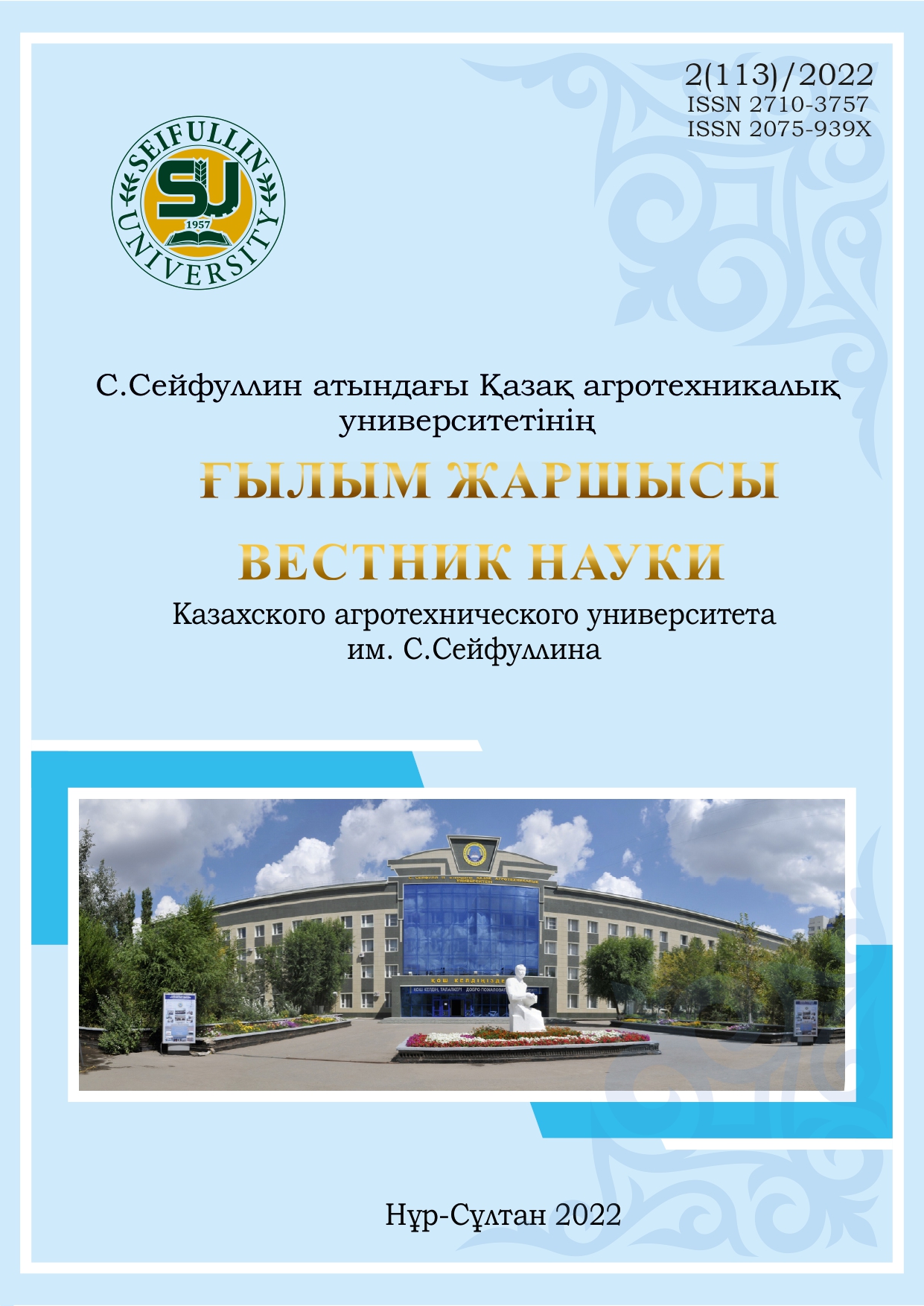EFFICACY OF NITROGEN NUTRITION ON PRODUCTIVITY AND QUALITY OF LENTILS
DOI:
https://doi.org/10.51452/kazatu.2022.2(113).1015Keywords:
mineral nutrition; lentils; nitrogen fertilizers; productivity; yield increase; nitrate nitrogen; optimal levelAbstract
The studies were conducted on dark chestnut calcareous light clay soils in the dry steppe zone of Northern Kazakhstan in 2018–2020. Concentration of soil nutrients and properties were as follow: humus - 2.93-2.95%, nitrate nitrogen - 6-8 mg / kg, mobile phosphorus - 10.7-13, 9 mg/kg, potassium more than 800 mg/kg, Ca + Mg 22-25 mg eq/100 g of soil, pH more than 8.0. The article shows the results of studies that describe growing conditions and the effect of nitrogen fertilizers on the yield and quality of lentil’s breed "Krapinka". Nitrogen fertilizers were applied on top of the phosphorus background (P90) at doses of 30 and 60 kg/ha in the top 10 cm soil layer, that increased the content of nitrate nitrogen from 9.3 to 18.3 mg/kg of soil in the 0-40 cm layer. Every 30 kg of nitrogen’s fertilizers increased soil N-NO3 level on 4 mg/kg of soil in the layer of 0 -40 cm. Fertilizers had no effect on the potassium content. Hydrothermal regime was contrastingly different in the years of research. The agricultural year of 2019 was extremely dry, with 209 mm of rainfall (average 326 mm). The agricultural years of 2018 and 2020 were favorable 330 and 320 mm of precipitation respectively with a slightly increased temperature background. The applied fertilizers increased the yield of lentils by 17% and improved the quality of seeds. The level of soil N-NO3 content was determined that formed maximum productivity of lentils. Biological features were revealed in terms of a combination of agrotechnical and economic indicators. An assessment was given of the prospects for lentils cultivation. "Krapinka" is responsive to nitrogen fertilizers and has a high biological potential for cultivation.

